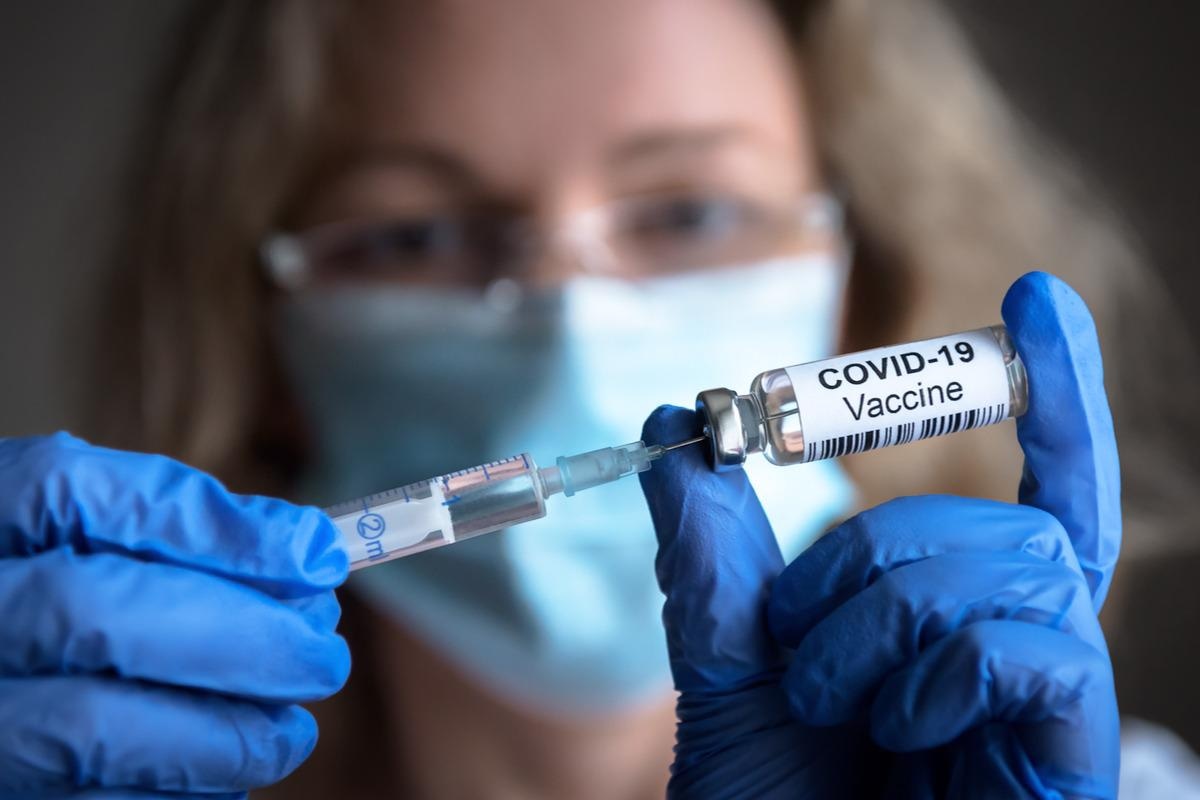In a current article posted to the medRxiv* preprint server, researchers demonstrated the short-term safety conferred by the extreme acute respiratory syndrome coronavirus 2 (SARS-CoV-2) BNT162b2 vaccination in adolescents and kids.

Background
The Coronavirus illness 2019 (COVID-19) Pfizer-BioNTech (BNT162b2) vaccine has a decrease effectivity towards the SARS-CoV-2 Omicron variant than the Delta and different variants. Furthermore, the BNT162b2 vaccine’s real-world efficacy towards Omicron an infection in youngsters and adolescents is restricted.
Shortly earlier than the SARS-CoV-2 Omicron outbreak, the BNT162b2 two-dose vaccination for youngsters and the third BNT162b2 shot for adolescents had been approved in Israel. The BNT162b2 vaccination was authorised in Israel on 2 June 2021 for adolescents aged 12 to fifteen, and a booster dosage was authorised on 29 August 2021 for many who had acquired the second vaccine no less than 5 months earlier than. Beginning 23 November 2021, youngsters aged 5 to 11 acquired a two-dose BNT162b2 vaccination using a 3rd of the quantity supplied to youngsters aged 12 and older. Nonetheless, the impression of those vaccinations on Omicron-confirmed SARS-CoV-2 an infection charges in these populations remains to be unknown.
In regards to the research
Within the present work, the researchers analyzed knowledge from Israel to research the efficacy of the two-dose BNT162b2 schedule for youngsters aged 5 to 11 years outdated and the booster shot for adolescents aged 12 to fifteen. The authors collected info for the Omicron BA.1 sublineage-dominated timeframe: between 26 December 2021 and eight January 2022 in Israel. They famous that credible estimates of efficacy for the time following 8 January 2022 had been arduous to accumulate resulting from substantial coverage modifications in COVID-19 testing, contact isolation, and quarantine in faculties.
The scientists analyzed knowledge from the Israeli Ministry of Well being database, which contained info on all vaccinations and assessments carried out in Israel. The research cohort included youngsters (aged 5 to 10) and adolescents (12 to fifteen) if that they had acquired a COVID-19 vaccine or had taken no less than one state-regulated antigen or polymerase chain response (PCR) take a look at earlier than 1 December 2021. The staff omitted the 11-year-old age group as a result of the present knowledge solely contained age in years, and vaccination eligibility dates various for 11 and 12-year-olds.
The investigators evaluated charges of confirmed SARS-CoV-2 an infection in youngsters aged 5 to 10 years outdated 14 to 35 days after getting the second dose with an inner management cohort of youngsters three to seven days following receiving the primary shot when the vaccination was nonetheless ineffective. Likewise, they in contrast confirmed COVID-19 charges in adolescents aged 12 to fifteen years outdated 14 to 60 days following getting a booster shot to a management cohort of adolescents three to seven days after getting the booster dose. The authors used Poisson regression controlling for intercourse, age, calendar week, publicity, and socioeconomic degree.
Outcomes and conclusions
Total, the research outcomes confirmed that the COVID-19 BNT162b2 vaccination provided an preliminary almost two-fold enchancment in immunity towards SARS-CoV-2 an infection in youngsters aged 5 to 10. The estimated incidence of confirmed COVID-19 within the 5 to 10 age class was 2.3-times decrease within the second dose cohort in comparison with the inner management inhabitants.
As well as, the present evaluation discovered {that a} current BNT162b2 booster dose in adolescents lowered SARS-CoV-2 infections by three- to four-time relative to the inner management. Particularly, the third dose decreased confirmed-COVID-19 charges over 3.3-time in adolescents.
The authors discovered that completely different testing habits didn’t clarify the lowered confirmed-SARS-CoV-2 an infection charges within the vaccinated teams relative to the non-vaccinated. In all age classes, the non-vaccinated cohorts examined much less incessantly than the vaccinated teams, implying that the anticipated safety in comparison with non-vaccinated individuals could also be underestimated.
Whereas the vaccine-naive cohorts had lowered testing charges than the vaccinated teams, the inner management topics had a barely larger testing charge than the second dose vaccination group within the 5 to 10 age vary, which could contribute to an overestimation of the vaccine’s safety. The interior management topics had a decreased testing charge than the booster group within the vaccinated 12 to fifteen age vary, most likely indicating that the booster shot confers a greater diploma of safety than anticipated on this research.
To summarize, the present investigation illustrated an evaluation of the COVID-19 BNT162b2 vaccine’s transient safety towards confirmed SARS-CoV-2 an infection in adolescents and kids. Relative to the corresponding inner management cohorts, the current two-dose vaccination of the BNT162b2 vaccine in youngsters and the newest booster shot in adolescents lowered the danger of confirmed SARS-CoV-2 an infection. The authors talked about that future analysis was wanted to find out how lengthy this safety lasts and the way effectively it protects towards different COVID-19 outcomes, together with long-COVID and pediatric inflammatory multisystem syndrome temporally related to SARS-CoV-2 (PIMS-TS).
*Necessary discover
medRxiv publishes preliminary scientific studies that aren’t peer-reviewed and, due to this fact, shouldn’t be thought to be conclusive, information medical apply/health-related habits, or handled as established info.






